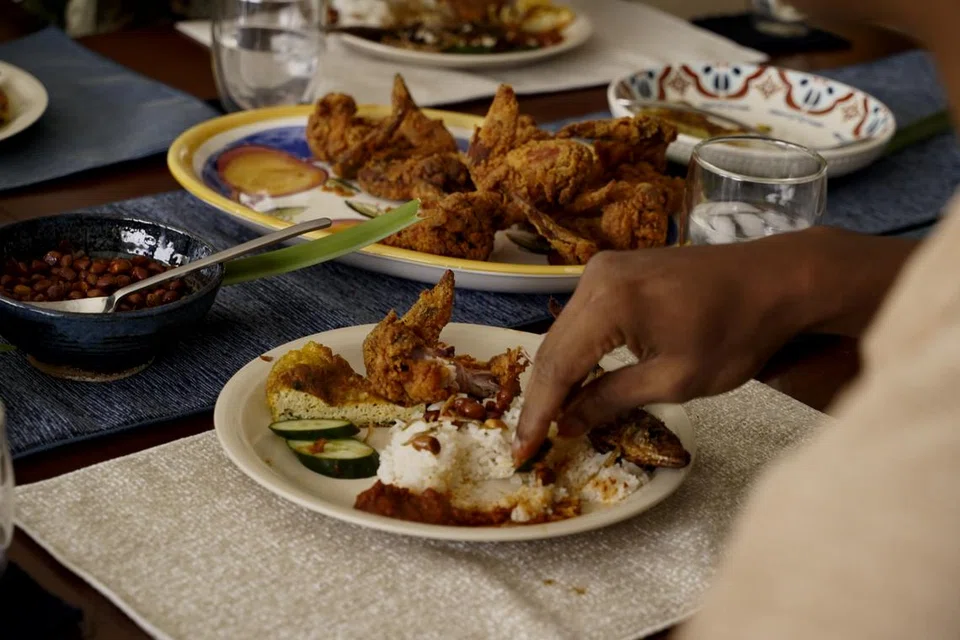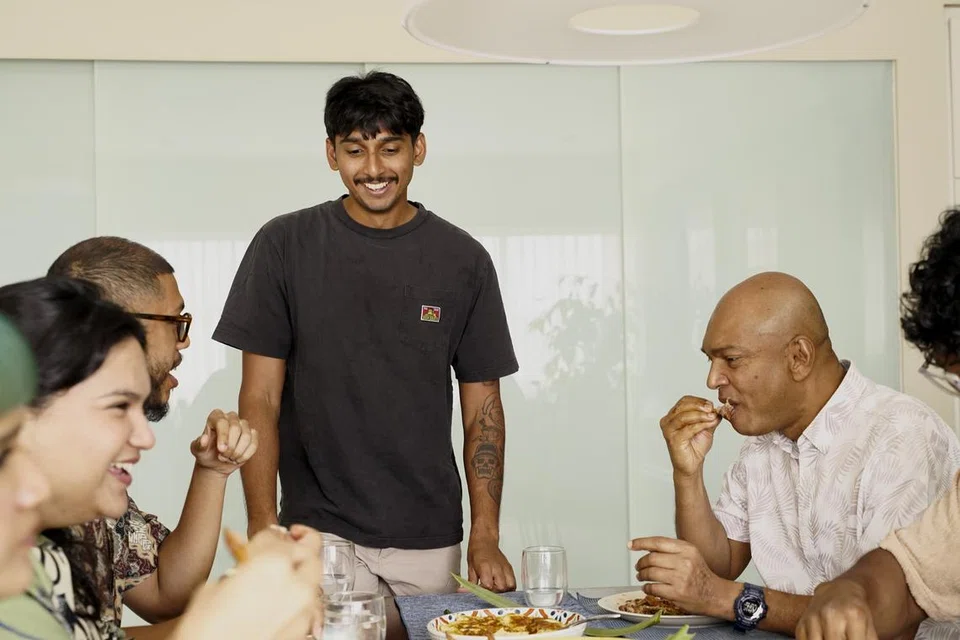A Chef’s Return to the Basics
Nasi Lemak is more than just a meal – it’s an experience, a flavour-packed homage to culture, tradition, and the timeless art of home cooking.
Yet, in the age of fast food and modern convenience, authentic Nasi Lemak has become increasingly elusive. Too many places serve a watered-down version of this beloved classic – the fragrant rice is replaced by something less aromatic; the sambal, once fiery and tangy, becomes too mild. The crispy ikan bilis loses its crunch. And the perfect omelette? A distant memory.
In December last year, Azure Mohan, 26, a Singaporean chef, had an epiphany after his family’s favourite Nasi Lemak store shut down – finding a solid plate of Nasi Lemak has become a bigger challenge than it should be, he thought.
Thereafter, Kampung Kembangan was born, a home-based Nasi Lemak business that has taken off since its birth in January this year.
Like clockwork, Azure’s family falls into an assembly line every Sunday at 10am to pack orders. On a typical Sunday, Azure receives over 50 orders, sometimes close to 100 with repeat customers.
And those repeat customers aren’t just from the neighbourhood. Azure has seen regulars from all across Singapore make the Sunday morning pilgrimage to Kembangan just to pick up a packet of his Nasi Lemak.
Ordering is simple, drop @KampungKembangan a direct message on Instagram, pay and collect your meal on Sunday mornings. Prices are kept affordable, ranging from $8.90 for chicken, $9.90 for fish, and $11.90 for a chicken-and-fish combo.

The spacious kitchen island, a rare find in Singapore, in their condominium tucked in central Kembangan, is crowded with all the essential elements of a traditional Nasi Lemak.
In a conical brown paper packet, adorned with the map print of post-independence Kembangan, Azure’s mother carefully packs a bowl of rice, topped with a generous dollop of sambal. She then places a neatly cut banana leaf on top, allowing the spices from the sambal to seep into the rice.
Azure’s father receives the packet next, adding a piece of fried chicken or fish, a spoonful of ikan bilis and peanuts, finishing it off with a fluffy omelette cut into a perfect isosceles triangle.
The family’s helper meticulously folds the packet while Lauren, Azure’s girlfriend, adds the finishing touch: a baby pink ‘Kampung Kembangan’ sticker with dark green lettering. She then slots the packets into bags labelled ‘Chicken’ or ‘Fish’, ensuring the food stays warm as customers gradually arrive to collect their orders.
This is Azure’s team – a family of happy helpers who are ardent supporters of his passion for food.
Azure’s love for cooking began at a young age. Growing up, he shadowed his parents in the kitchen as they prepared dinner every night. But at the age of 13, his passion truly blossomed when he realised cooking wasn’t just a life skill; it was his calling.
After a year at Victoria Junior College, Azure took a leap of faith and transferred to Temasek Polytechnic’s culinary program. His parents had no qualms.
“Azure loved food ever since I was pregnant with him – I had the strangest, spiciest cravings. When he told me food was his passion and he wanted to pursue it professionally, it made perfect sense to me,” his mother said.
The Covid-19 pandemic delayed Azure’s plans, but the circuit breaker revealed new modes of exploration. When the restrictions had slightly relaxed and five people could be invited over to homes, Azure did private dinners, curating menus and cooking for his guests.
Next came Le Cordon Bleu London, a culinary school whose alumni list is a who’s who of celebrity chefs. There, Azure developed most of the skills he uses today, which he later put into practice during an eight-month placement at Manteca, an Italian restaurant in London that is featured in the Michelin Guide.
His return to Singapore’s culinary scene, however, was not as flowery an experience.
“Culturally, there is a lot more camaraderie in London than Singapore. I think your peers can be quite toxic sometimes; it’s a real rat race. Everyone’s out there for themselves, so you don’t feel like a team, which is not always the best thing,” he said. Chefs are underpaid in spite of the round-the-clock commitment that is often expected of them - the main reason why he does not see himself opening a restaurant of his own, Azure added.
After a stint at Michelin-star restaurant Nouri, Azure decided it was time to take a break. Even though he left the fast-paced culinary world behind, he continues to stay in the hospitality space, now working predominantly in the marketing sector. Soon after, along came Kampung Kembangan.
For a chef, the journey from crafting intricate dishes in a Michelin-starred restaurant to returning to the humble simplicity of Nasi Lemak is nothing short of cinematic. It’s a full-circle moment, where the finesse of fine dining meets the heart and soul of a beloved classic.
“My focus is not expanding the business, it is to make food people enjoy eating,” he said.


